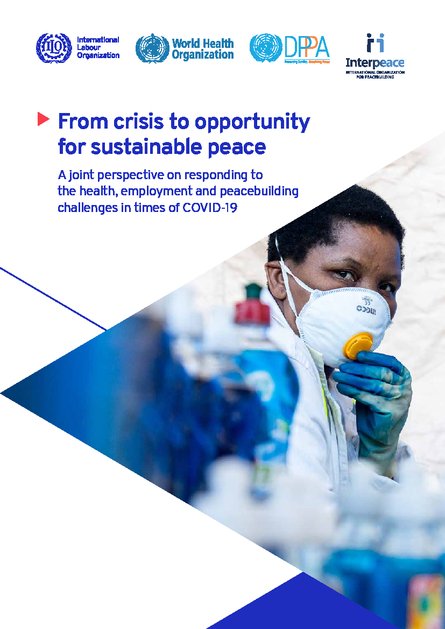
The ongoing COVID-19 crisis uniquely complicates peace and reconstruction efforts in conflict-affected countries, jeopardizing public health responses and threatening peacebuilding efforts.
A joint report co-authored by the International Labour Organization (ILO), the World Health Organization (WHO), Interpeace, and the United Nations Peacebuilding Support Office (DPPA/PBSO) calls for tailored and coordinated responses to build and sustain peace in countries affected by conflict. The publication, From Crisis to Opportunity for Sustainable Peace – A joint perspective on responding to the health, employment and peacebuilding challenges in times of COVID-19 , offers ways to tackle the health crisis, create decent jobs in a conflict-sensitive manner and contribute to peacebuilding.
In countries affected by armed conflict or where the risk of an outbreak of violence is high, the COVID-19 crisis or the response to it can exacerbate grievances, increase mistrust, discrimination and perceptions of injustice over access to health services, decent jobs and livelihoods, says the report. It can erode trust in state authorities and have a disproportionate impact on certain segments of the population, especially women, migrants, and displaced, marginalized and vulnerable groups.
Immediate measures in response to the public health crisis should be part of a wider, long-term vision for recovery, says the report. Ways to build resilience in societies to both conflict and the challenges posed by the current and potential future pandemics include scaling up existing public employment programmes and social protection schemes and increasing investment in productive infrastructure, the publication emphasizes.
Such measures can help lay the foundation for more structural changes that build and sustain peace over time. Emergency public works schemes, for instance, can mitigate the economic impact of the pandemic and support the health response by upgrading infrastructure for primary health care and access to clean water, sanitation and hygiene.
